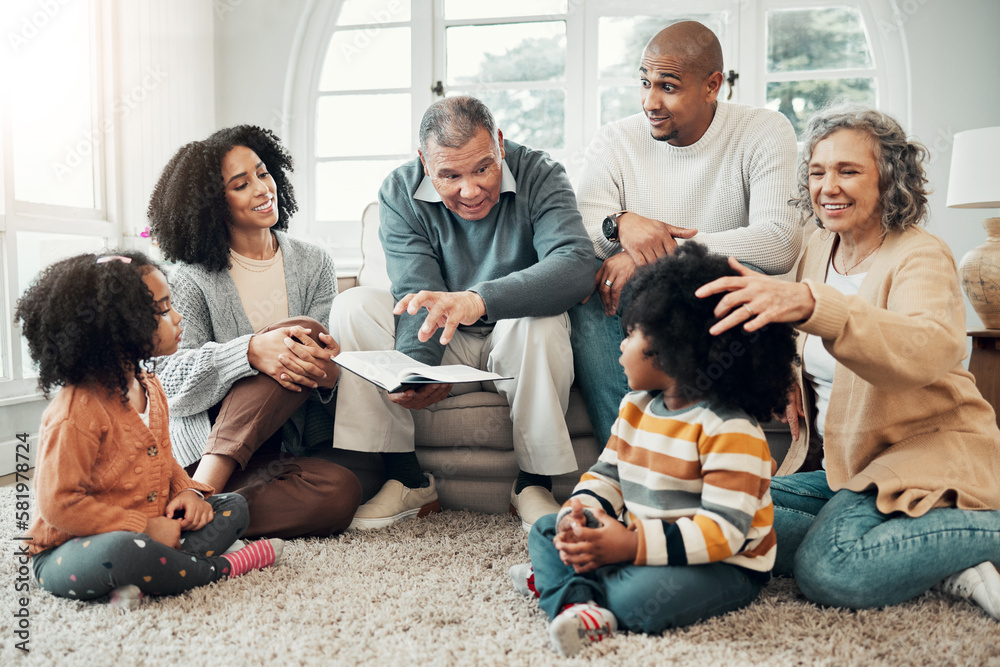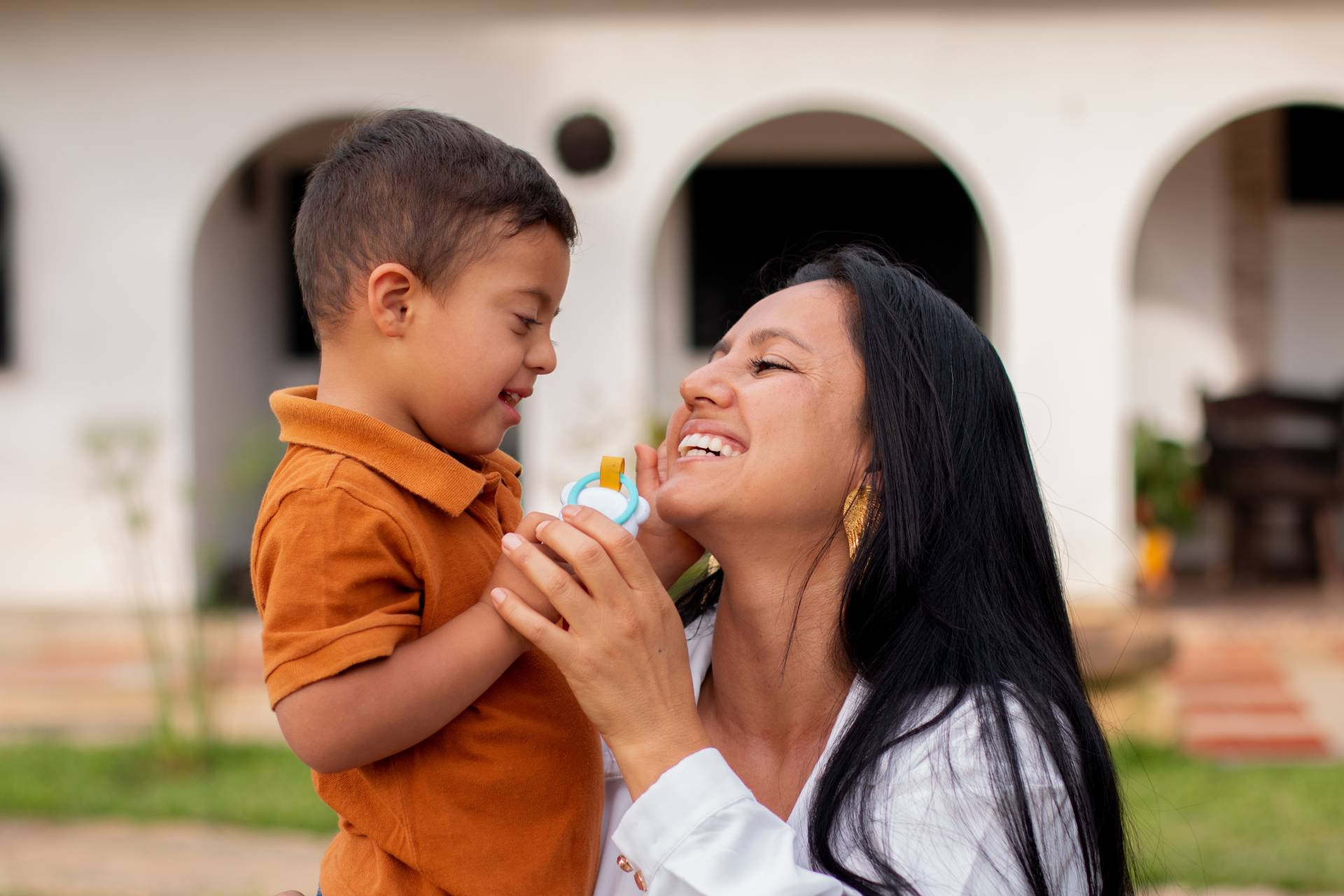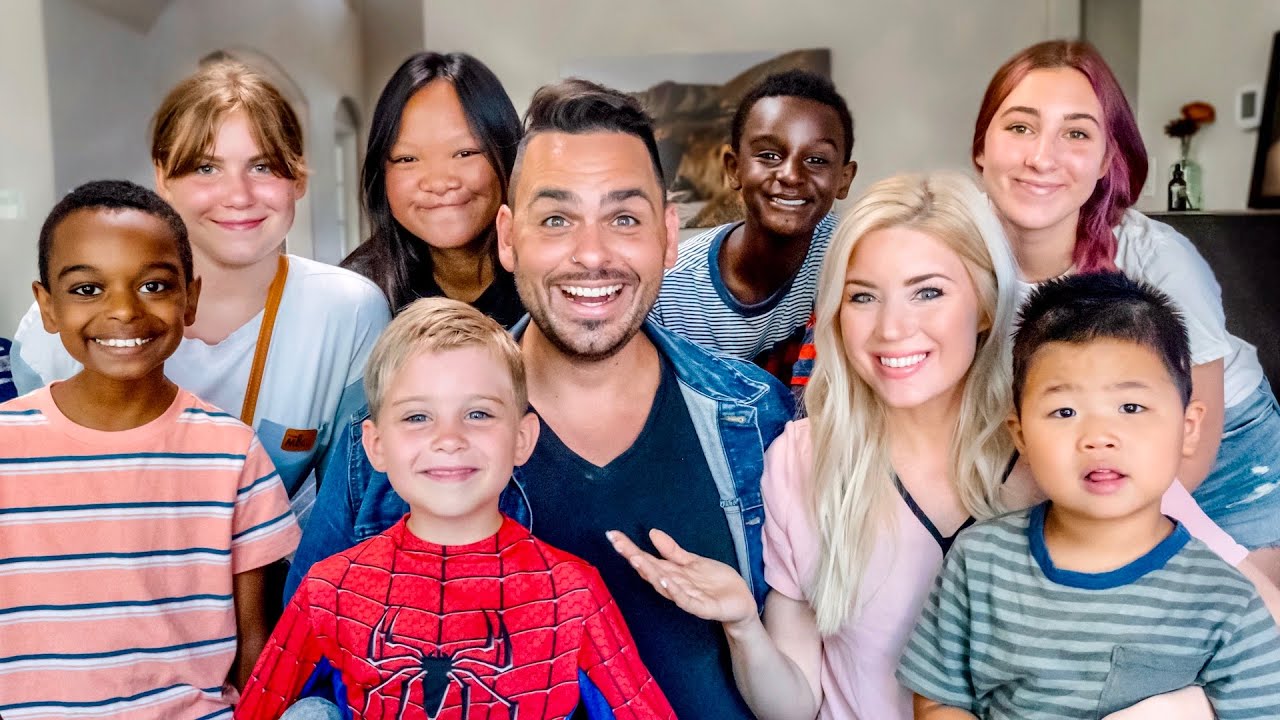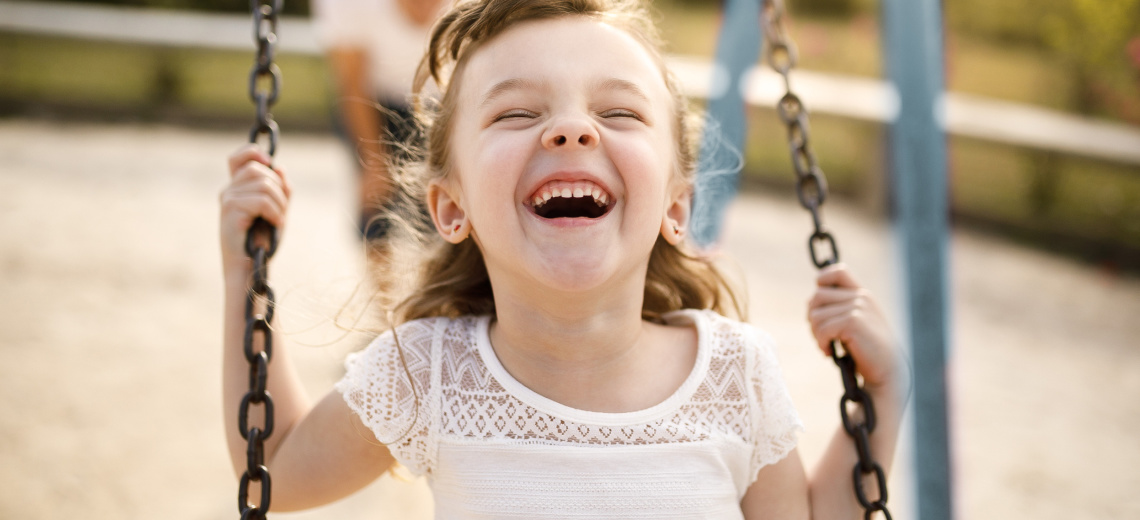10 Advantages of Parenting in Multicultural Families
Embrace a multitude of benefits parenting in multicultural families! Enhance cultural awareness, language skills, and empathy. Gain diverse perspectives and a strong sense of identity. Develop resilience, adaptability, and global perspective. Enjoy cultural exchanges, exposure to traditions, and global citizenship growth. Strengthen family bonds through shared experiences and celebrations. By exploring these advantages, discover a world of opportunities and connections that can enrich your family life and provide a truly unique upbringing for your children.
Key Takeaways
- Enhanced cultural awareness and sensitivity through exposure to diverse backgrounds.
- Language acquisition benefits and cognitive advantages from bilingualism and cultural immersion.
- Increased empathy and understanding through diverse perspectives and cross-cultural communication.
- Diverse perspectives and worldviews enrich family dynamics and promote unity.
- Stronger sense of identity and self-confidence from exploring various cultural influences.
Enhanced Cultural Awareness

By raising children in multicultural families, you can cultivate an enhanced cultural awareness that fosters empathy and understanding towards diverse perspectives and traditions. Engaging in cross-cultural communication within your family unit promotes cultural sensitivity, allowing you to navigate different customs and beliefs with respect and openness. These interactions not only strengthen family bonds but also lay the foundation for your children to develop intercultural connections that transcend borders.
Through exposure to various cultural backgrounds, your family gains a broader global perspective, appreciating the richness of diversity and the similarities that unite us all.
Embracing multiculturalism within your family dynamic encourages curiosity and a willingness to learn from others. It provides a unique opportunity to celebrate differences, fostering a sense of unity amidst diversity. By actively engaging with different cultural practices and beliefs, you equip your children with invaluable skills to thrive in an increasingly interconnected world.
Emphasizing the importance of cultural awareness in your multicultural family setting can lead to a more inclusive and harmonious society where empathy and understanding reign supreme.
Language Acquisition Benefits

Exploring the linguistic landscape of multicultural families opens doors to profound language acquisition benefits that enrich communication skills and cultural understanding simultaneously.
Growing up in a multicultural family provides a unique opportunity for children to become bilingual, offering them a significant advantage in today’s globalized world. The cognitive benefits of bilingualism are well-documented, including enhanced problem-solving skills and improved multitasking abilities.
Cultural immersion within a multicultural family environment also plays an essential role in language development. Children are exposed to a variety of languages, dialects, and cultural nuances from a young age, which fosters a deep appreciation for different ways of communicating.
This exposure not only enhances their language skills but also cultivates a greater understanding and respect for diverse cultures.
Increased Empathy and Understanding
Understanding and empathy flourish naturally in multicultural families as individuals navigate diverse perspectives and experiences, fostering a deep sense of interconnectedness and compassion. In such environments, cultural sensitivity is heightened, leading to increased emotional intelligence.
The constant exposure to different traditions, beliefs, and practices enhances cross-cultural communication skills, allowing family members to engage in meaningful interactions with people from various backgrounds.
Living in a multicultural family encourages perspective-taking, as individuals learn to see situations from different viewpoints and understand the complexities of various cultural norms. This ability to empathize with others and appreciate diverse perspectives not only strengthens family bonds but also extends to interactions outside the family unit.
Diverse Perspectives and Worldviews
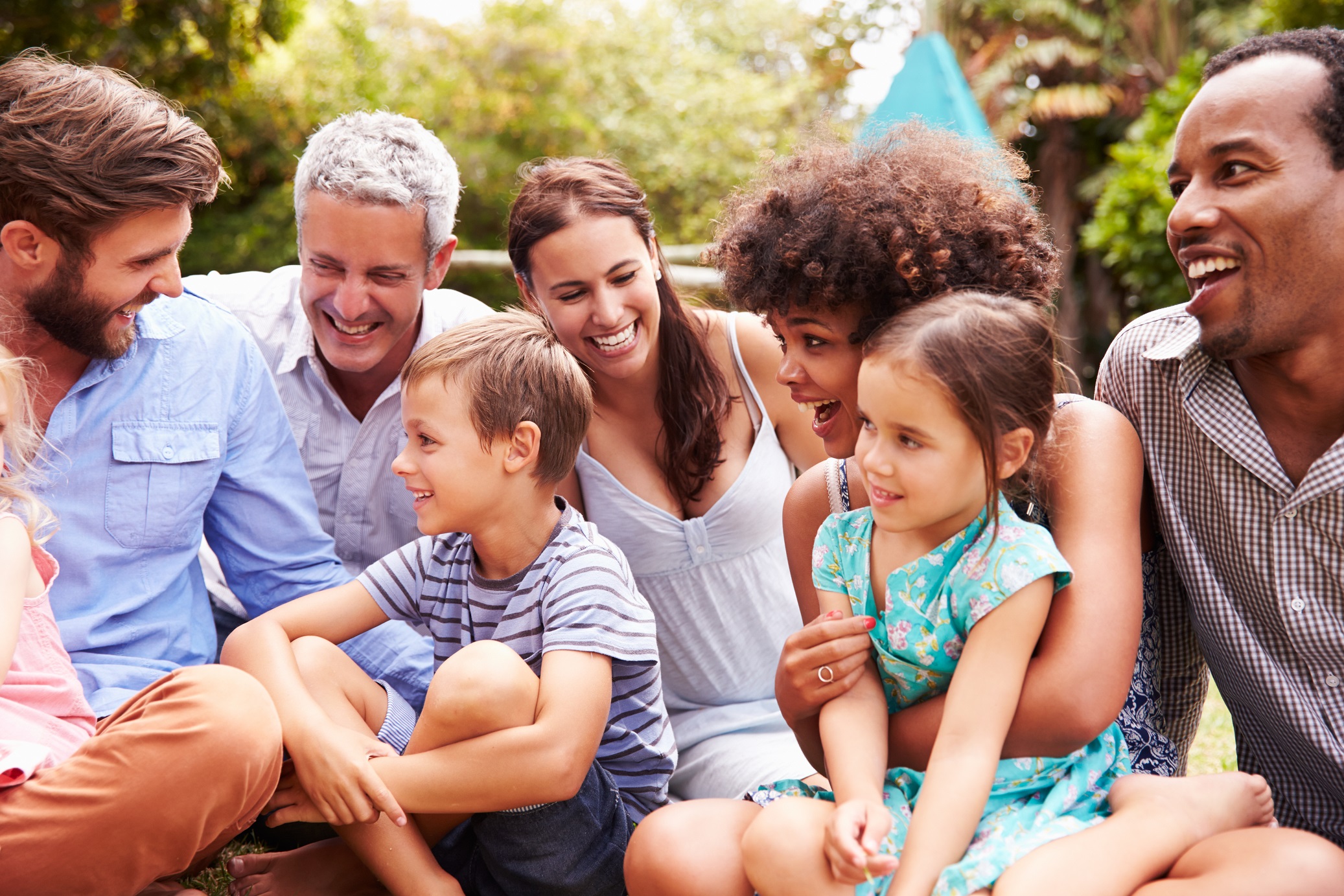
Experiencing diverse perspectives and worldviews in a multicultural family broadens your understanding of different cultures and fosters a sense of global interconnectedness. In this setting, cross-cultural communication becomes a natural part of your daily interactions, enriching your ability to traverse various cultural norms and values.
Diverse family dynamics offer a unique opportunity to learn from each member’s background, contributing to a rich tapestry of traditions and beliefs within your household.
Intercultural conflict resolution plays an essential role in multicultural families, where differences in opinions and customs may arise. Through open dialogue and mutual respect, you develop effective multicultural parenting strategies that honor each family member’s heritage while fostering unity. These strategies not only promote harmony within the family but also equip you with valuable skills for dealing with a world filled with diverse perspectives.
Embracing diverse perspectives and worldviews in your multicultural family not only enriches your personal growth but also instills in you a profound appreciation for the interconnectedness of our global community.
Stronger Sense of Identity
Developing a stronger sense of identity within a multicultural family involves embracing the diverse cultural influences that shape your self-perception. Growing up in a household where different traditions, languages, and customs coexist provides you with a unique opportunity to connect deeply with your roots while also exploring new cultural horizons. This rich tapestry of experiences fosters a profound cultural connection that can help you form a more robust understanding of who you’re and where you come from.
In a multicultural family, you have the chance to learn from various perspectives and integrate them into your own identity, leading to a greater sense of self-confidence. By embracing the diversity around you, you can develop a more inclusive view of the world and appreciate the beauty in differences. This self-assurance cultivated through cultural integration can serve as a solid foundation for maneuvering the complexities of modern society with grace and resilience.
Embrace the uniqueness of your multicultural upbringing, for it’s a treasure trove that can enrich your sense of self in profound ways.
Resilience and Adaptability Skills
Cultivating resilience and adaptability skills within a multicultural family environment equips you with invaluable tools for maneuvering the complexities of an ever-changing world. In such a setting, you’re exposed to diverse perspectives, customs, and beliefs, which foster problem-solving strategies and coping mechanisms. This exposure challenges you to navigate differing viewpoints, encouraging you to think critically and creatively when faced with obstacles.
Furthermore, being part of a multicultural family enhances your emotional intelligence as you learn to empathize with various cultural norms and practices. This heightened emotional intelligence enables you to communicate effectively across cultural boundaries, bridging potential gaps in understanding. Through open dialogue and active listening, you develop strong communication skills that are essential for thriving in an interconnected global society.
Ultimately, the resilience and adaptability instilled in you through your multicultural family experience are invaluable assets that prepare you to tackle life’s uncertainties with grace and confidence.
Expanded Social Network
Having a multicultural family expands your social network in incredible ways. You get to build diverse friendships that bring new perspectives and experiences into your life.
This exposure to different cultures not only enriches your relationships but also provides you with a global perspective that’s invaluable in today’s interconnected world.

Diverse Friendships
Expanding your social network through diverse friendships in a multicultural family setting can open up new opportunities for personal growth and understanding. By engaging in cross-cultural playdates and becoming part of multicultural social circles, you expose yourself and your children to a rich tapestry of traditions, languages, and worldviews. These interactions not only foster a sense of inclusivity but also promote empathy and tolerance towards different cultures.
Through diverse friendships, you gain access to a wide range of perspectives and experiences that can enrich your own worldview. Your children, in particular, benefit from exposure to different cultural norms and values, helping them develop a broader understanding of the world around them. Additionally, forming connections with individuals from diverse backgrounds can lead to new opportunities for learning, collaboration, and mutual support.
Embracing diverse friendships within a multicultural family setting not only strengthens your social circle but also enhances your capacity for empathy, cultural awareness, and personal development.
Cultural Exchange
By engaging with individuals from diverse backgrounds and cultures within your expanded social network, you can facilitate meaningful cultural exchanges that enrich your family’s multicultural experience.
Cultural celebrations offer a unique opportunity to learn about different traditions and customs. Participating in festivals, holidays, and ceremonies from various cultures can broaden your understanding and appreciation for diversity.
Food exchange is another exciting aspect of cultural exchange. Trying new dishes and sharing your own traditional recipes can create bonds and foster mutual respect.
Exploring clothing styles from different cultures can be a fun and educational experience for your family. Dressing in traditional attire not only allows you to embrace diversity but also showcases your willingness to learn and adapt.
Music exchange is a powerful way to connect with others. Listening to and sharing music from various cultures can evoke strong emotions and create a sense of unity.
Global Perspective
Engaging with individuals from diverse backgrounds through your expanded social network provides a valuable global perspective that enhances the richness of your multicultural parenting experience. Intercultural communication plays an essential role in building understanding and empathy across different cultural contexts. By interacting with a wide range of people, you have the opportunity to broaden your cultural competence, gaining insights that can benefit your parenting approach.
Cross-cultural relationships formed through your social network offer unique perspectives on parenting practices and values from around the world. These interactions can inspire you to adopt multicultural parenting strategies that blend the best aspects of various cultural traditions. By learning from others and sharing your experiences, you create a supportive community that celebrates diversity and encourages open-mindedness.
Incorporating global perspectives into your parenting journey not only enriches your own cultural awareness but also instills valuable lessons in your children. Embracing diversity through your expanded social network fosters a more inclusive and harmonious family environment, promoting acceptance and respect for different backgrounds.
Exposure to Various Traditions
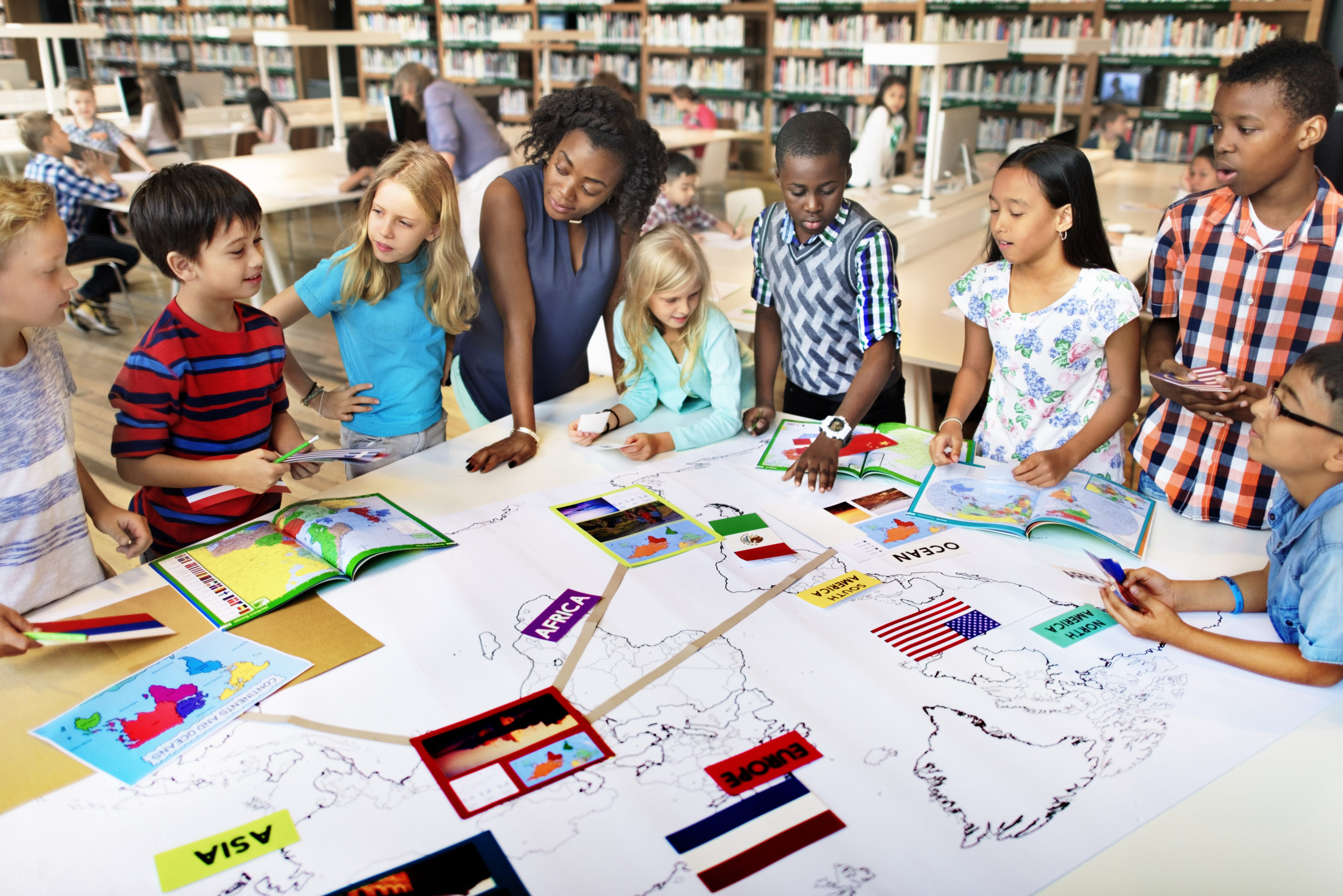
Encountering a diverse array of cultural practices within a multicultural family setting can provide enriching experiences for both parents and children. Intercultural celebrations become an integral part of your family life, offering a unique opportunity to learn about and participate in various traditions. These celebrations not only foster a sense of belonging but also promote understanding and respect for different cultural backgrounds.
Through these intercultural celebrations, you and your children set out on a journey of cultural heritage discovery. Each tradition shared within your family contributes to a richer tapestry of experiences, helping you appreciate the beauty and significance of diverse customs.
As you engage in these celebrations, you cultivate a sense of unity and connection with your family members, creating lasting memories rooted in shared traditions. These experiences not only broaden your cultural awareness but also instill a sense of pride in your heritage and a curiosity to explore other cultures.
Embracing diverse traditions within your multicultural family setting enriches your lives and strengthens the bond you share through the celebration of unique customs and practices.
Global Citizenship Development
Developing a global mindset within your multicultural family setting can broaden your perspective and nurture a sense of interconnectedness with the world around you. By fostering intercultural friendships, you and your children have the opportunity to learn from individuals with diverse backgrounds, beliefs, and perspectives.
These friendships can provide valuable insights into different cultures, traditions, and ways of life, helping you appreciate the beauty of diversity and cultivate a sense of global citizenship.
Moreover, engaging in cross-cultural communication within your family can enhance your ability to interact effectively with people from various cultural backgrounds. Through open and respectful communication, you can bridge cultural gaps, build mutual understanding, and promote harmony in an increasingly interconnected world.
Family Bonding Through Shared Experiences

Sharing meaningful experiences as a family can strengthen bonds and create lasting memories that foster a sense of unity and connection among members of multicultural families. Cultural celebrations provide an excellent opportunity for families to come together, learn about each other’s backgrounds, and participate in traditions that honor their diverse heritage. Whether it’s celebrating Diwali, Hanukkah, or Lunar New Year, these events create a sense of belonging and pride in one’s cultural roots.
Family vacations are another essential aspect of bonding in multicultural families. Exploring new destinations, trying different cuisines, and immersing yourselves in various customs can deepen your understanding of each other’s backgrounds and create shared memories that will be cherished for years to come. From hiking in the mountains to lounging on a tropical beach, these adventures offer a chance to connect on a deeper level and create a strong family bond.
Shared meals and holiday traditions also play an important role in family bonding. Cooking and enjoying traditional dishes together can be a bonding experience that not only brings delicious flavors to the table but also strengthens the familial ties. Similarly, upholding holiday traditions from different cultures allows family members to learn from one another, appreciate diversity, and create new customs that blend their unique backgrounds into a harmonious whole.
Frequently Asked Questions
Can Multicultural Parenting Lead to Confusion About Cultural Identity?
Multicultural parenting may bring confusion about cultural identity as you navigate different traditions. It’s important to embrace cultural exploration and foster a strong sense of self. Through this, you can develop a deeper cross-cultural understanding.
How Do Multicultural Families Handle Language Barriers Within the Household?
Overcoming language barriers in multicultural families involves patience and persistence. Encouraging language learning through cultural immersion fosters understanding and connection. Embrace the challenges as opportunities for growth and mutual respect within your diverse household.
Are There Challenges in Balancing Different Cultural Traditions in Parenting?
Balancing different cultural traditions in parenting can be challenging. Cultural compromises and open communication are key. Understanding traditional values and adapting parenting styles can help navigate these complexities. Remember, it’s a journey of learning and growth together.
Can Multicultural Parenting Impact a Child’s Sense of Belonging?
When parenting in a multicultural family, the exposure to diverse cultural backgrounds can greatly impact your child’s sense of belonging. Cultural integration fosters a strong sense of self, embracing diversity and shaping a unique identity.
Do Multicultural Families Face Discrimination or Prejudice in Society?
In society, multicultural families can face discrimination due to stereotypes and preconceptions. It’s essential for societal acceptance to promote cultural integration and understanding. By breaking down barriers, we can create a more inclusive and harmonious community.
Conclusion
To sum up, parenting in multicultural families offers a multitude of benefits that can enhance both your family dynamics and your children’s development.
From increased cultural awareness to expanded social networks, the advantages are clear. By embracing the diversity within your family, you aren’t only fostering a stronger sense of identity but also promoting empathy, understanding, and global citizenship.
So, celebrate the unique experiences and traditions that come with multicultural parenting, and watch as your family grows stronger together.

Hey there! 👋 I’m a proud mom and passionate writer, sharing my parenting journey. 📝 Join me as I navigate the ups and downs of motherhood, offering tips, advice, and a sprinkle of humor along the way. 🌟


